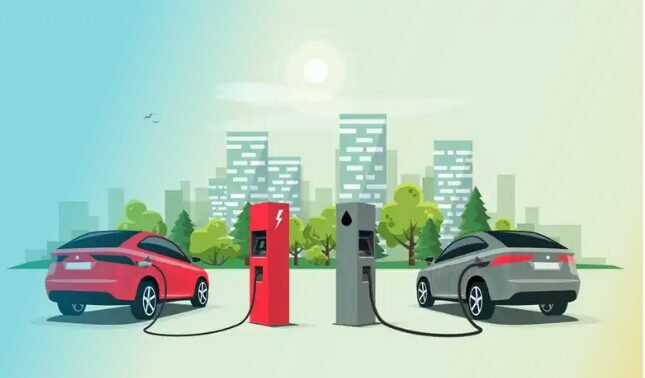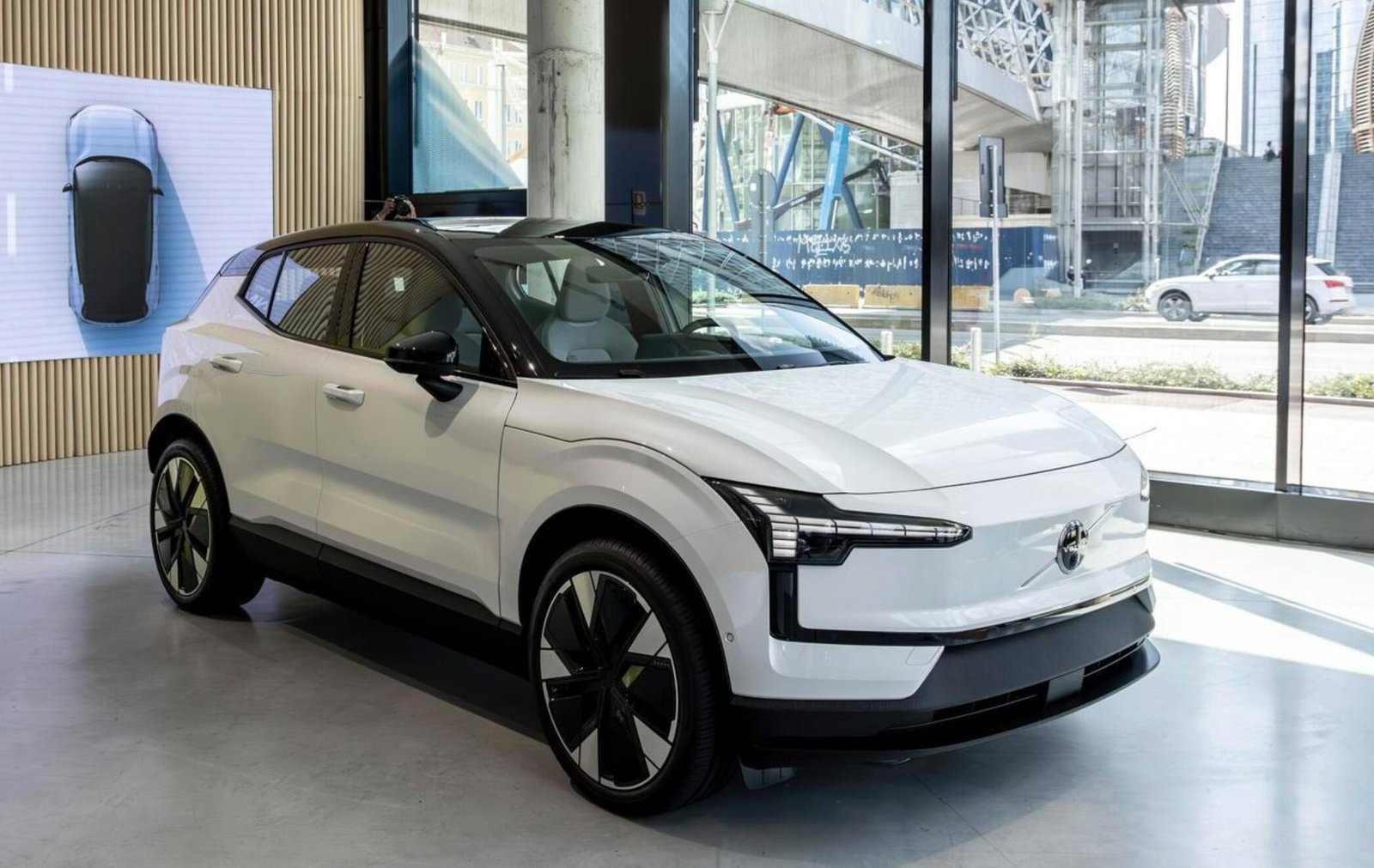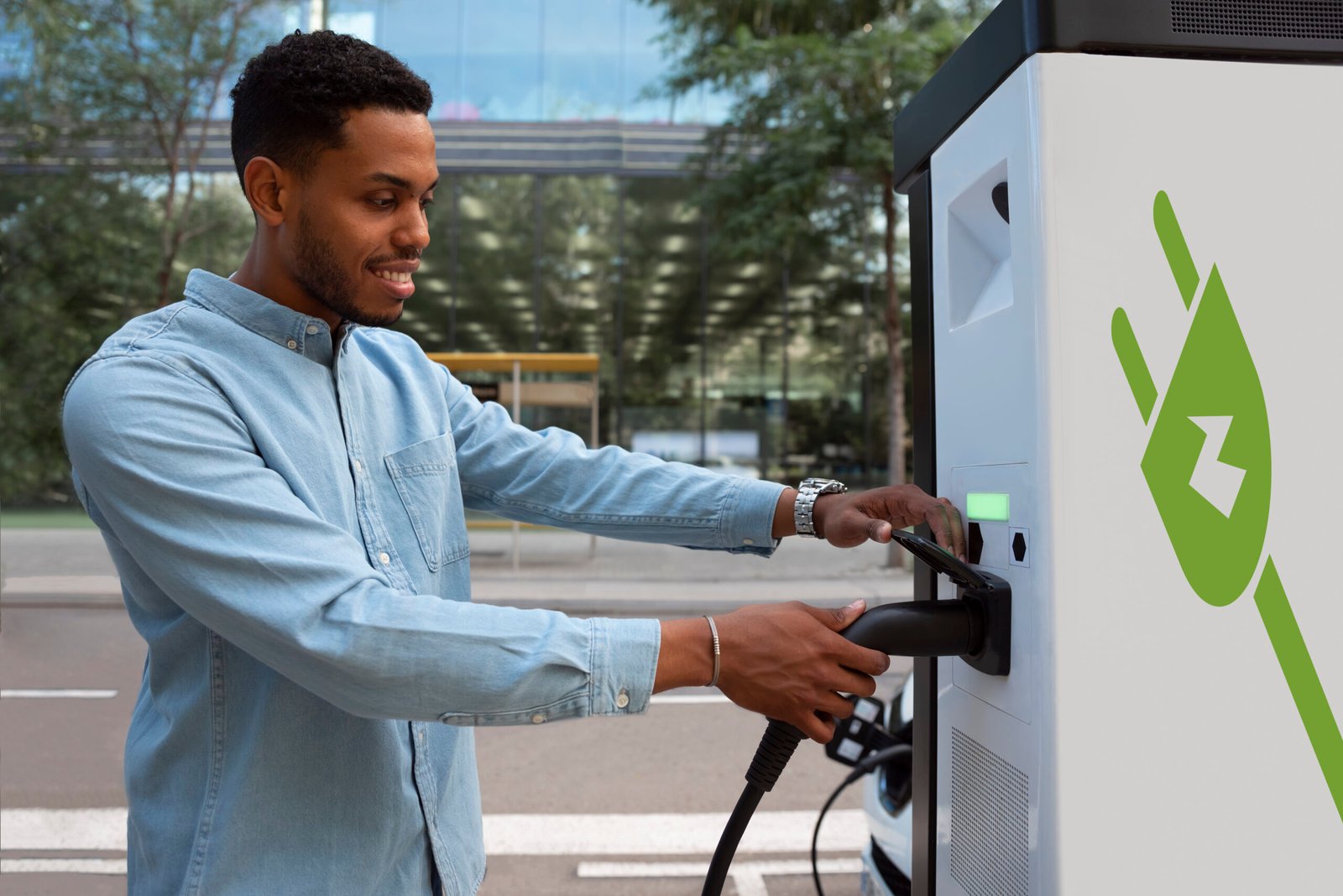Is EV Cheaper Than Gas? Compare Real Driving Costs

Is EV cheaper than gas? As you consider making the switch to an electric vehicle, one of the most pressing questions is whether it’s more cost-effective than driving a gas-powered car. The answer depends on several factors, including the cost of electricity, fuel prices, and the type of vehicle you own.

We’ll explore the various costs associated with owning and operating an electric vehicle compared to a traditional gasoline-powered vehicle, providing you with a comprehensive analysis to help you make an informed decision. By examining the financial implications of driving an electric vehicle, you’ll gain a clearer understanding of whether it’s the right choice for you.
Key Takeaways
- Understand the cost comparison between electric vehicles and gas-powered cars
- Learn about the factors that influence the cost of owning an electric vehicle
- Discover how electricity costs impact the overall cost of driving an electric vehicle
- Find out how fuel prices affect the cost comparison between electric vehicles and gas-powered cars
- Get a clear understanding of the financial implications of switching to an electric vehicle
The True Cost of Owning an Electric Vehicle
When considering the switch to an electric vehicle (EV), understanding the true costs involved is crucial. You’re not just paying the purchase price; there are other expenses to factor into your decision.
Initial Purchase Price Comparison
The initial purchase price of an EV is often higher than that of a comparable gas-powered vehicle. For example, the Tesla Model 3 starts at around $40,000, while the Honda Civic sedan begins at approximately $20,000. However, various incentives, such as federal tax credits, can help bridge this gap.
Key consideration: Look into available incentives that can reduce the upfront cost of your EV.
Home Charging Setup and Infrastructure Costs
Installing a home charging station is a necessary investment for EV owners. The cost can vary widely depending on your location and the type of charger you choose. Level 2 chargers, for instance, can cost between $500 to $2,000, plus installation fees.
| Charger Type | Cost | Installation Cost |
|---|---|---|
| Level 1 | $200-$500 | $0-$200 |
| Level 2 | $500-$2,000 | $500-$1,000 |
Is EV Cheaper Than Gas? Breaking Down the Numbers
Understanding the cost implications of driving an Electric Vehicle (EV) compared to a gas-powered vehicle is crucial for making an informed decision. A key factor in deciding between an EV and a gas-powered vehicle is the cost per mile for electricity versus gasoline.
Cost Per Mile: Electricity vs. Gasoline
The cost per mile for EVs is generally lower than for gas-powered vehicles, especially for those with access to low-cost electricity. To calculate this, you can divide the cost of electricity (or gasoline) by the vehicle’s efficiency measured in miles per kilowatt-hour (or miles per gallon). For instance, if electricity costs 12 cents per kWh and your EV gets 3 miles per kWh, the cost per mile is 4 cents.
How Regional Pricing Affects Your Savings
Regional pricing for both electricity and gasoline can significantly impact your savings. Areas with high gasoline prices but low electricity rates offer the most substantial savings for EV owners. For example, if you live in a region where gasoline costs $3.50 per gallon but electricity is 10 cents per kWh, driving an EV could save you a considerable amount per mile compared to driving a gas-powered vehicle.
By analyzing these regional price differences, you can better understand the potential savings of driving an EV in your area.
Hidden Savings: Maintenance and Operational Benefits
Owning an EV can lead to significant savings in various areas beyond just fuel costs. As you consider making the switch to an electric vehicle, it’s essential to understand the broader financial benefits that come with EV ownership.

Reduced Maintenance Requirements and Costs
One of the significant advantages of EVs is their reduced maintenance needs. With fewer moving parts than gas-powered vehicles, EVs are less prone to mechanical issues. You won’t need to worry about oil changes, and brake wear is also reduced due to regenerative braking. This translates into lower maintenance costs over the life of your vehicle.
Federal and State Tax Incentives
The U.S. government offers various federal and state tax incentives to encourage the adoption of electric vehicles. These incentives can significantly reduce the upfront cost of your EV, making it more competitive with gas-powered vehicles. Be sure to research the specific incentives available in your state to maximize your savings.
Resale Value Considerations
Electric vehicles tend to hold their value well, which is an important consideration if you plan to sell your vehicle in the future. As demand for EVs continues to grow, their resale value is likely to remain strong. This means you can potentially recoup a larger portion of your initial investment when you decide to sell.
Conclusion: Making the Smart Financial Choice for Your Situation
When deciding whether driving an EV is cheaper than gas, several factors come into play, including your location, driving habits, and the specific vehicles you’re comparing. By analyzing the initial purchase price, cost per mile, regional pricing, maintenance costs, and available incentives, you can make an informed decision that’s right for you.
Comparing fuel costs EV vs gas reveals that EVs offer potential savings, from lower fuel costs to reduced maintenance needs. Your driving habits and local fuel prices will significantly impact these savings. For instance, frequent long-distance driving may affect the overall cost-effectiveness of an EV, depending on the availability of charging infrastructure along your routes.
By weighing these factors and doing your research, you’ll be able to determine whether an EV is the smart financial choice for your situation. As you consider your options, keep in mind that the total cost of ownership encompasses more than just fuel costs, and EVs may offer advantages that contribute to long-term savings.
FAQ
Is an electric vehicle (EV) really cheaper to run than a gas-powered car?
Generally, yes, EVs are cheaper to run, mainly due to lower fuel costs (electricity vs. gasoline) and reduced maintenance needs. However, the overall cost-effectiveness depends on various factors, including your location, driving habits, and the specific vehicles being compared.
How do I calculate the cost per mile for my EV?
To calculate the cost per mile for your EV, you’ll need to know your electricity rate and the efficiency of your vehicle, usually measured in miles per kilowatt-hour (mi/kWh). You can then divide your electricity rate by your vehicle’s efficiency to get the cost per mile.
Are there any incentives available for purchasing an EV?
Yes, there are federal and state tax incentives available for purchasing an EV, which can help offset the higher upfront cost. The amount and eligibility vary depending on your location and the specific vehicle.
How does regional pricing affect my EV savings?
Regional pricing for electricity and gasoline can significantly impact your EV savings. If you live in an area with relatively low electricity rates, you’ll likely save more by driving an EV. Conversely, if gasoline prices are low in your area, the savings might be less substantial.
Do EVs require less maintenance than gas-powered vehicles?
Yes, EVs generally require less maintenance, as they have fewer moving parts, no oil changes are needed, and brake wear is reduced due to regenerative braking.
Can I save money by charging my EV at home?
Charging your EV at home can be cost-effective, especially if you have access to relatively low-cost electricity rates. Installing a home charging station may require an upfront investment, but it can provide long-term savings.
How do EVs hold their value compared to gas-powered vehicles?
EVs tend to hold their value well, partly due to their lower operating costs and the growing demand for eco-friendly vehicles. However, the resale value can vary depending on the specific model, age, and condition of the vehicle.
Are there any additional costs associated with owning an EV?
While EVs have lower operating costs, there may be additional expenses, such as the cost of replacing the battery pack, although most manufacturers provide warranties for their batteries.









